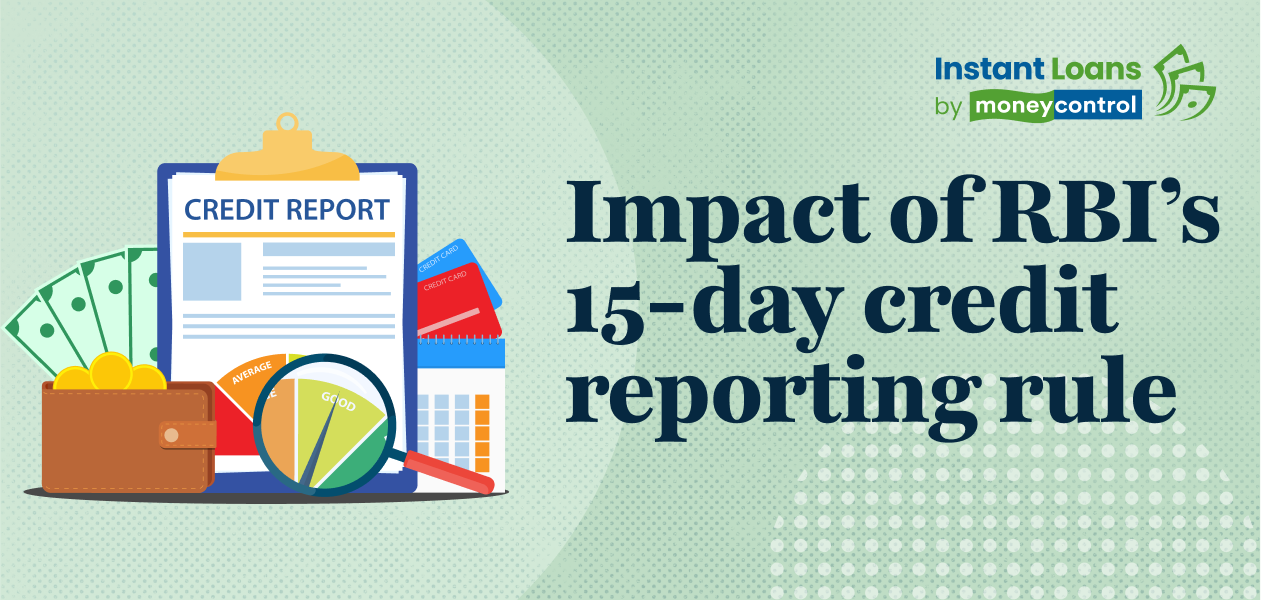06 February, 2025 | 11:01 IST

The Reserve Bank of India (RBI) recently introduced a new policy on credit reporting methods for a more timely and accurate depiction of the financial activities of borrowers. As per the RBI guidelines, the lenders are now needed to update credit bureau records every 15 days, instead of the existing monthly cycle. These new guidelines have come into effect from January 1, 2025.
The transition might totally change the way credit scores are generated and managed by the credit bureaus. Earlier, the credit scores used to be updated once a month, often resulting in a delay in reflecting borrowers' repayments. Such delays posed a risk of adversely affecting the credit scores of the borrowers, leading to problems in accessing new loans or better credit facilities.
The RBI’s move is aimed at removing any such barriers and to improve the credit score accuracy of the borrowers.
Table of Contents
The 15-day rule makes the credit score management process faster, more accurate and responsive. This will be beneficial for both the borrowers and lenders, by offering a clearer and more up-to-date picture of the handling of credit instruments by loan seekers.
The previous monthly reporting scheme used to take up to 40 days in some cases for missed payments or defaults. This discrepancy frequently resulted in lenders receiving outdated information, allowing them to make a wrong evaluation of the borrower's creditworthiness. On the other hand, the faster updates of payments towards existing loans and credit cards will help the borrowers in availing better credit facilities.
Many platforms offer free credit score checks. For instance, you can easily track your credit score on the Moneycontrol app and website without any cost. Moreover, you can apply for personal loans up to Rs 50 lakhs from eight lenders. Moneycontrol also offers a fully paperless process for applying for personal loans, with interest rates starting at 10.5% per annum.
ALSO READ: Credit Report: A step-by-step guide to read credit score report in detail
According to industry experts, the earlier once-a-month reporting cycle used to delay in reflecting the defaults and payments by borrowers. It even took up to 40 days in some cases to receive the updated credit score data and the lenders were evaluating the personal loan applications based on outdated credit reports. The new 15-day cycle will significantly reduce the delays.
Your credit score is a number between 300 and 900 which indicates your creditworthiness and chance of repaying your loans. The better your credit score, the more likely you are to be eligible for low-interest loans.
The ideal credit score varies based on the lender and loan type, but a score of 700 to 750 or above is considered excellent because it can help you qualify for loans with better interest rates and terms.
However, this credit score categorisation may differ based on the classifications of different credit agencies.
To conclude, the new 15-day reporting rule will make credit information more accurate and clear. With the RBI asking lenders to update credit reports every 15 days, borrowers who pay on time will see their credit scores improve faster. This will help them get better loan deals and improved credit facilities.
ALSO READ: What’s the most important factor affecting your Credit Score?
It’s advisable to regularly check your credit score to find out any discrepancy regarding your payments and defaults. If you notice any error in your credit report, immediately raise an objection with the credit bureau. You can check your credit score for free on the Moneycontrol app and website. Additionally, Moneycontrol also offers personal loans up to Rs 50 Lakhs through 8 lenders in a completely digital process. The interest rates start at 10.5% per annum.
Share it in your circle
Table of Contents
Explore Top Lenders for Instant Loan upto
Get Instant Loan up to ₹50 Lakhs with Zero Paperwork from Top Lenders
 100% Digital
100% Digital Quick Disbursal
Quick Disbursal Low Interest Rates
Low Interest Rates